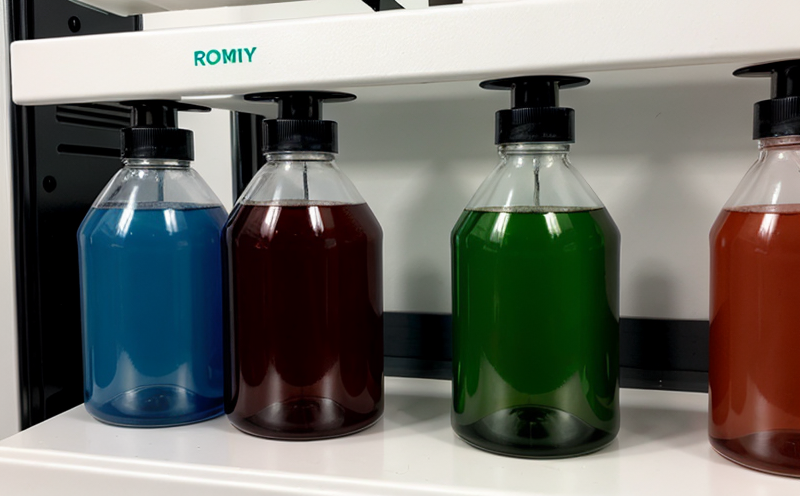ASTM D648 Heat Deflection Reactivity Testing in Plastics
The ASTM D648 heat deflection testing method is a crucial procedure used to evaluate the thermal mechanical properties of plastics, specifically focusing on their behavior at elevated temperatures. This test measures the maximum load-deflection temperature (MDT) and the flexural modulus by subjecting specimens to controlled heating while applying a defined force until deflection occurs.
The ASTM D648 standard is widely used in industries such as automotive, aerospace, electronics, and manufacturing because it provides critical insights into the performance of plastics under heat. The test helps predict the potential for deformation or failure due to increased temperature, which is essential for ensuring product durability and safety.
For instance, in the automotive industry, materials like polypropylene (PP) used in engine components must withstand high temperatures without losing structural integrity. ASTM D648 testing ensures that these parts can maintain their shape and strength under operating conditions. Similarly, in electronics manufacturing, heat-resistant plastics are essential to prevent overheating damage.
The test involves preparing specimens according to the specified dimensions outlined in ASTM D648. The specimen is then clamped into a fixture on a universal testing machine. A load of 13.79 N/mm² (2 lb/in²) per square millimeter is applied uniformly across the sample until it reaches its maximum deflection point, which is typically set at 0.25 mm.
The temperature is gradually increased while monitoring the deflection and recording the highest temperature reached before the specimen deflects by this amount. This temperature is reported as the heat deflection temperature (HDT). Additionally, the flexural modulus can also be calculated based on the slope of the stress-strain curve at a specified temperature.
Understanding HDT is vital because it indicates how much thermal stress a material can endure before deforming. Materials with higher HDT values are more suitable for applications requiring long-term exposure to heat, such as engine parts or electrical enclosures.
The ASTM D648 test ensures that materials meet the required standards, thereby contributing to product reliability and safety. For example, in aerospace components, where extreme temperatures are common, ASTM D648 testing helps ensure that plastics used do not degrade over time, maintaining structural integrity during flight.
| Standard | Description |
|---|---|
| ASTM D648-21 | Procedure for Determining the Heat Deflection Temperature of Plastics |
| ISO 75 | Heat deflection temperature of plastics (load-deflection method) |
| EN ISO 75-2:2016 | Determination of heat deflection temperature of thermoplastics |
The ASTM D648 standard is not only relevant to plastics but also extends its applicability across various sectors. In the electronics industry, for instance, it helps in selecting appropriate materials for circuit boards that must operate efficiently at elevated temperatures without compromising performance.
In summary, ASTM D648 heat deflection testing plays a pivotal role in ensuring the reliability and safety of plastic components across numerous industries. By providing precise data on how materials behave under thermal stress, this test supports informed decision-making processes for quality managers, compliance officers, R&D engineers, and procurement professionals.
Why It Matters
The ASTM D648 heat deflection testing method is vital in ensuring the safety and performance of plastic components across various industries. The test helps predict how plastics will behave under thermal stress, which is critical for maintaining product integrity and reliability.
In the automotive sector, where components are exposed to extreme temperatures during operation, ASTM D648 testing ensures that materials like polypropylene used in engine parts can withstand these conditions without deforming or failing. This prevents potential safety hazards and extends the lifespan of automotive components.
In electronics manufacturing, heat-resistant plastics are essential for preventing damage from overheating. ASTM D648 testing helps identify suitable materials that maintain their performance at elevated temperatures, ensuring the durability and efficiency of electronic devices.
The test also supports compliance with regulatory standards, helping manufacturers ensure that their products meet industry requirements. This is particularly important in sectors like aerospace, where strict adherence to thermal specifications is paramount for safety and performance.
Moreover, ASTM D648 testing aids in the selection of appropriate materials for applications requiring long-term exposure to heat. By providing accurate data on material behavior under thermal stress, this test supports informed decision-making processes, ensuring that products can operate reliably in challenging environments.





